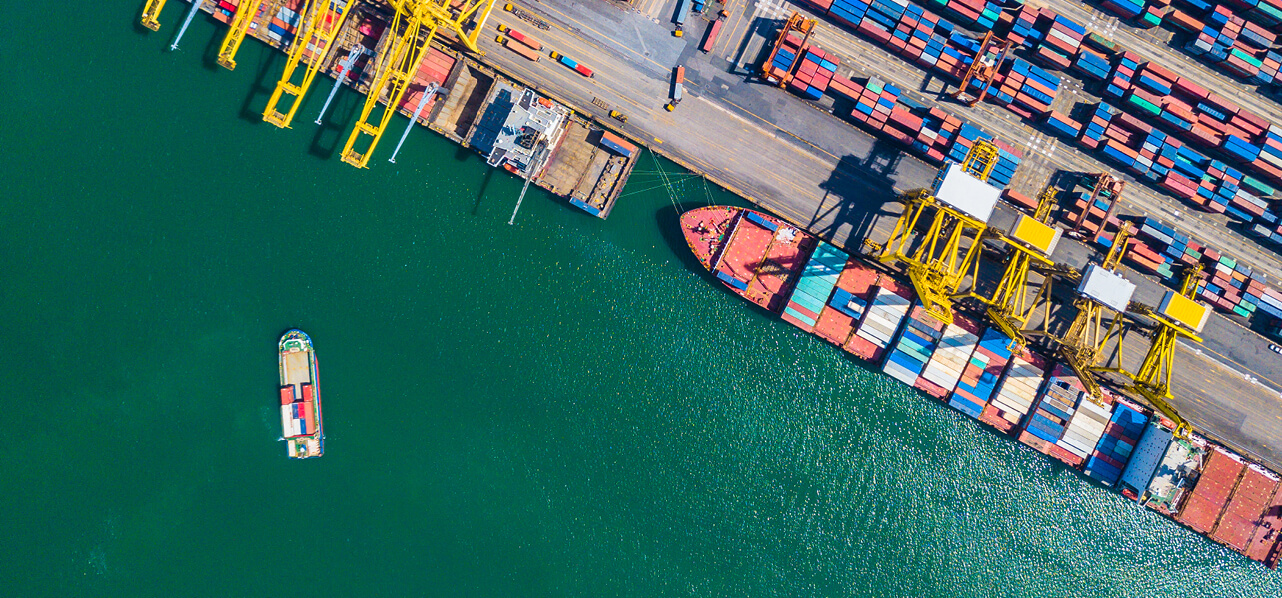Partner London
"Without UK tonnage tax, there would be 25,400 fewer jobs for UK employees."
What is it?
Tonnage tax is an optional tax regime providing an alternative method for calculating the taxable profits of shipping companies. There is no actual tonnage tax – the rules just create a special way of calculating UK corporation tax. A UK tonnage tax company is subject to UK corporation tax like any other UK company – it must file tax returns, and (except in the rarest of cases) is a UK tax-resident company. Importantly, UK-incorporated tonnage tax companies can benefit from the UK’s huge range of double tax treaties. “Tonnage tax” in a UK context has no connection to charges and fees imposed by a ship registry.
What does it do?
A tonnage tax company’s actual income and expenses from its shipping activities, and gains or losses from sales of ships, are wrapped up in a “tonnage tax ring-fence” and are then put away and disregarded for tax purposes. In place of the real income, gains, expenses, losses or profits, the company is deemed to earn a daily profit based on the tonnage of its fleet (with that deemed profit charged to UK corporation tax at 19%). This means that a company’s tax liability from its shipping activities is stable, predictable and very easy to calculate. The deemed profit figure is low, such that tonnage tax creates a close to zero tax environment. As real life expenses and losses are disregarded, the calculation does mean that shipping companies with even enormous losses in a given year will still be tax-paying – tonnage tax is designed to be attractive to profitable shipping companies.
Why do we have it?
Tonnage tax is an incentive for shipping groups to locate their business in the UK. The low effective tax rate allows UK tonnage tax companies to compete with shipping companies based offshore, in other EU tonnage tax systems or in other jurisdictions with shipping tax incentives (most notably Singapore). The basic economic logic is that the UK would have no (or very few) shipping companies if they were fully taxable (as they would either be put out of business by non-tax paying competitors or they would move to another jurisdiction so as to become non-tax paying themselves). Shipping companies located in the UK employ large numbers of people, create a wide range of economic activity, train new generations of seafarers (who will in turn become the next generation of land-based maritime operators) and support other companies in the UK maritime sector. So the view was taken that the UK is better off having a large number of low-taxed shipping companies than having no or very few UK shipping companies – that was the choice faced by the Government in the 1990s, and continues to be the choice faced by the Government today.
Does it work?
The Centre for Economics and Business Research (“CEBR”) recently estimated that in 2015, the UK shipping industry directly supported over £13.9bn in business turnover, £4.3bn in gross value added in the UK economy and 51,000 jobs for UK employees, and that the sector contributed over £560m in tax revenues. If the UK’s tonnage tax regime was not in place, it is conservatively estimated that gross value added to the UK economy would be £2.2bn lower, there would be 25,400 fewer jobs for UK employees, and tax revenues would drop by almost £250m.
If the UK's tonnage tax regime was not in place, it is conservatively estimated that gross value added to the UK economy would be £2.2bn lower.
Who is it for?
Tonnage tax is open to ship operators involved in the transport of goods or people at sea (for example, container lines and cruise/ferry companies) or in services provided at sea (such as safety standby vessels). To qualify, companies must “operate” ships from the UK – vessel financiers cannot enter the regime and vessels leased out on bareboat charter terms are generally outside of tonnage tax. The company must “strategically and commercially manage” its fleet from the UK – this is a deliberately vague phrase. UK tonnage tax rules have to apply similarly to the world’s largest container and cruise ship operators and to a company operating a single platform supply vessel. In short, it means real and effective management must take place in the UK, generating real economic activity. Tax payers are encouraged to make use of a “pre-clearance” process with HMRC, the UK’s tax authority, so that prior agreement can be reached as to the level of UK activity required in each particular case to access the benefits of tonnage tax.
What is the attitude of the UK’s Tax Authority?
Much of the success of the UK tonnage tax regime can be put down to the attitude and approach of a small number of people within HMRC. The tonnage tax unit of HMRC contains people who understand the rules, have an active interest in the industry and make themselves available to answer questions or discuss issues. The tonnage tax rules are often deliberately vague, but tonnage tax has been able to operate so successfully in the UK because HMRC have consistently applied sensible interpretations of the rules. HMRC’s commercial approach encourages openness from taxpayers and their advisers and so tonnage tax has not suffered from a seemingly endless battle of avoidance attempts countered by anti-avoidance rules. Good taxpayer and HMRC behaviour has created a stable tax environment where issues can generally be resolved pragmatically and in ways mutually acceptable to HMRC and tonnage tax companies.
"The Government had made many assurances that tonnage tax will survive Brexit and that seems the only sensible position to take."
Is UK tonnage tax the same as tonnage tax everywhere else?
There is, in practice, little to distinguish the numerous tonnage tax regimes across Europe (although occasionally points of detail can make significant differences, for example in relation to the nature of the income which falls in or outside the tonnage tax ring fence). The basic qualification rules and how the systems operate (replacing actual profits or losses with deemed profits) are fundamentally the same across Europe. The UK is the only system which obliges tonnage tax companies to train (or facilitate the training of) cadets – this adds a cost to operating in UK tonnage tax. This has also served as a barrier to many of the largest shipping fleets entering UK tonnage tax, partly because of the cost but also the practical limits of just how many people want to train as seafarers. UK tonnage tax companies do not have to fly UK flags and do not have to employ UK officers or crew. So long as there is sufficient commercial management activity in the UK, technical management does not need to take place in the UK. A move into UK tonnage tax usually involves moving management level employees into the UK. This has really been where UK tonnage tax has been able to win out over other regimes as international employees are more willing to move to the UK than to many other European countries. It is to be hoped that Brexit will not damage the attractiveness of the UK as a place to live, or the ease with which people can relocate here.
What about Brexit?
As ever with Brexit, uncertainty rules. The Government has made many assurances that tonnage tax will survive Brexit and that seems the only sensible position to take. The industry has enforced the need for stability – tonnage tax has been successful in attracting inward investment but many tonnage tax groups have plenty of attractive options open to them should the UK start to look less attractive than it has to date. It is possible that Brexit may allow certain marginal improvements to elements of the tonnage tax regime, but it is already an attractive, well-functioning system and leaving it alone (and committing to leaving it alone) may well be the best course of action for the authorities.
Conclusion
The aims of those who introduced tonnage tax have been achieved and the positive economic impact of tonnage tax continues to justify its existence. The main threat to its future success is uncertainty and instability. The industry is working hard to push forward that message to those in Government.




